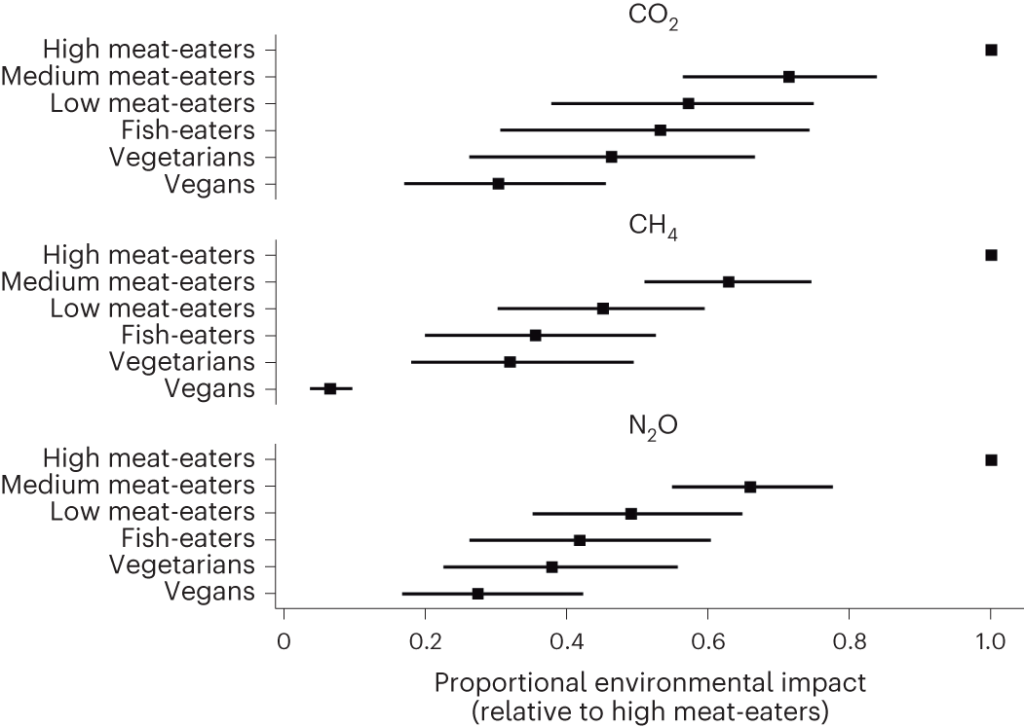The Australia government is considering including ‘sustainability’ messaging in the updated version of its dietary guidelines.
In the previous Guidelines published in 2013, the sustainability topic was only brought up in the appendices. If the government follows the recommendations of the National Health and Medical Research Council (NHMRC), it would bring Australia into the circle of countries that have recognised the connection between consumer food choices and climate change.
Those countries currently include Canada, Switzerland, Sweden, Qatar, Norway, Brazil, and Germany.

CEO of think tank Food Frontier, Dr Simon Eassom says that including sustainability messaging of any kind within the Guidelines would be a significant step in moving towards less environmentally damaging food systems.
“The Dietary Guidelines are a respected and well used reference for food experts and educators,” said Eassom in a statement. “If the recommendation is taken onboard, it could increase Australian consumers’ awareness of the environmental impacts of their diet and benefit their health. We are yet to see how sustainability will be incorporated by the NHMRC in the review process, but we hope the Guidelines will include evidence about the varying impacts of protein sources.”
“We are confident that the final guidelines will be objectively assessed, measured, and balanced and highlight the benefits of alternative and complementary protein sources that, if plant-based, provide essential fibre whilst appealing to those seeking familiar and easily implemented dietary choices.”

Approved by 143 nations, the COP28 UAE Declaration on Climate and Health underscored the significance of food systems to climate change and highlighted the pressing need to shift to “sustainable healthy diets”.
However, data shows most Australians do not share this perspective – for example, a recent nationwide study from La Trobe University found that the majority of Australians surveyed believe reducing and going to a fully meat-free diet is ineffective in mitigating climate change. Those surveyed also reported low willingness to engage in either behaviour.

According to Food Frontier, the inclusion of sustainability messaging in the Guidelines would align them more closely with the World Health Organisation’s (WHO) ‘One Health’ movement, which takes a unifying approach to sustainably balance and optimise the health of people, animals, and ecosystems.
Meanwhile, the Guidelines’ potential sustainability messages are drawing ire from the domestic meat industry and local conservatives.
In a report in The Australian, for example, Red Meat Advisory Council chair John McKillop said the moves: “…go well beyond the policy intent of the Australian Dietary Guidelines to provide recommendations on healthy foods and dietary patterns […] [the] review process must not be allowed to be used as a vehicle to drive ideological agendas at the expense of the latest nutritional science.”
In addition, Sydney radio station 2GB declared the move a “war on meat”, with host Ben Fordham claiming farmers were being “screwed over again”.
Dr Eassom spoke to Future Alternative about the divisiveness around including sustainability in the Guidelines.
“It is a controversial step that detractors have argued is beyond the remit of an organisation that should be focused on scientifically verifiable evidence around nutritional requirements and giving guidance on health-related matters only,” Eassom said. “Due to the influence dietary guidelines have on what we eat, the creators of the guidelines have a responsibility to ensure they are good for human health and the environment, as both are intrinsically linked.
The updated Guidelines are expected to be finalised in 2026.
To stay up-to-date on the latest industry headlines, sign up to Future Alternative’s enewsletter.
Posted on:


